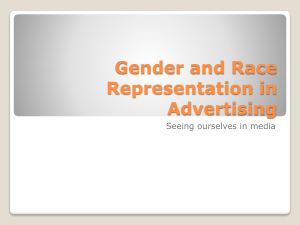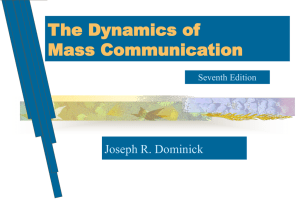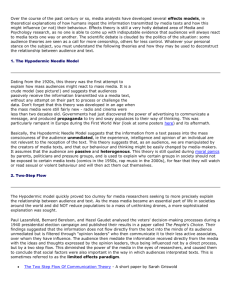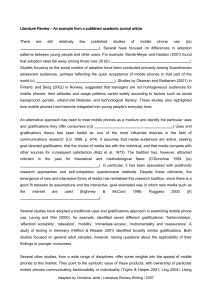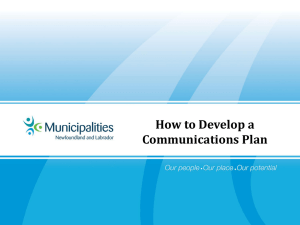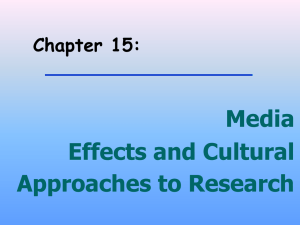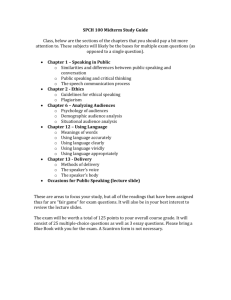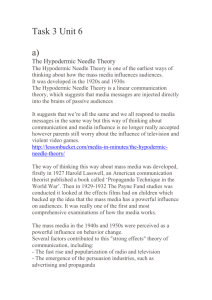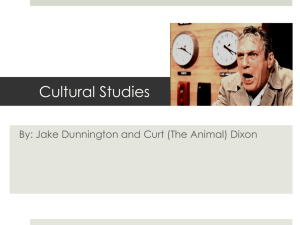Uses and Gratifications Theory
advertisement
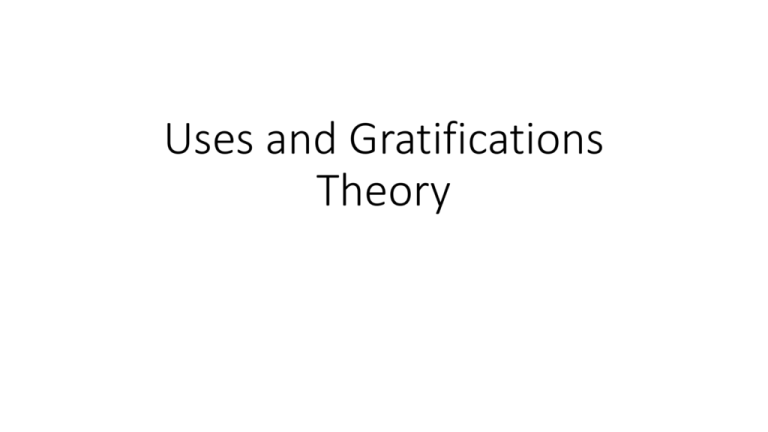
Uses and Gratifications Theory The effect of the media • The ability of the media to have a direct influence on society is questionable. Persuading consumers to buy a particular brand of jeans or cornflakes works well for advertisers, but advertising which tries to alter more deep-rooted and complex forms of behaviour such as drug-taking or alcohol consumption has been found to have only a small impact. • This 1987 anti-heroin poster failed because the boy proved too too too appealing for some girls, who wrote in to get the poster Hypodermic Needle Theory • A theory that suggests that the media ‘inject’ ideas into a passive audience, like giving a patient a drug. • Seemed obvious when the Nazis and Communists used the media as a propaganda tool. They appeared to be successful in making their ideas dominant and ‘injecting’ large numbers of people with their messages. • Studies of political advertising campaigns in America in the 1940s and 50s suggested that this was not the case. Rather, in terms of political advertising, audiences focused on those messages that reinforced their existing beliefs and tended to dismiss those that contradicted their own ideas and views. • This suggested that audiences in fact selected the messages that they wanted to hear and ignored others. The media’s effect seemed to be one of reinforcement rather than persuasion. Uses and Gratifications Theory • The basic point underlying the approach to the study of audiences is that individuals actively consume and use the media in order to meet certain needs. The four broad needs are: • Diversion – a form of escape or emotional release from everyday pressures • Personal relationships – companionship through TV personalities and characters, and sociability through discussion about TV with other people • Personal identity – the ability to compare one’s own life with the characters and situations within a text and explore personal problems and perspectives • Surveillance – a regular supply of information about ‘what’s going on’ in the world Maslow’s Hierarchy of Needs Problems with uses and gratifications theory • It assumes that the media identifies our needs and provides material to meet them. • It could be that we, the audience, create these needs as a response to the material provided by the media. • It could be that we have many other needs that are not identified, or met, by existing media texts. • There may be some evidence for this theory because there are programmes that become popular when this was not expected. The Great British Bake Off for example.

